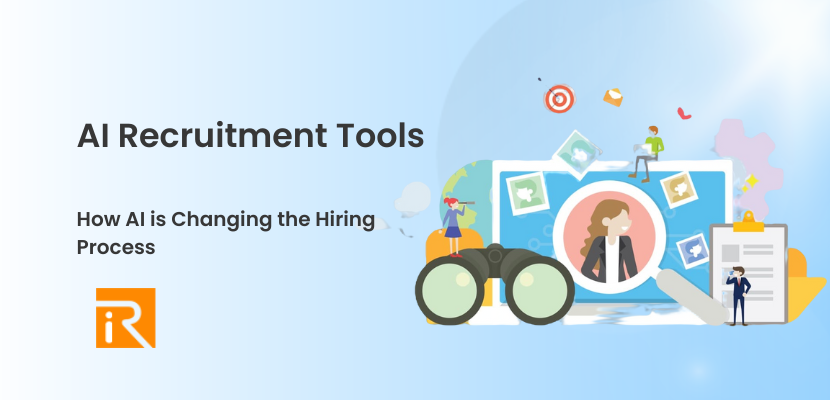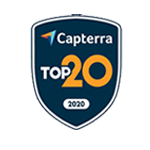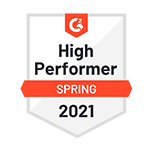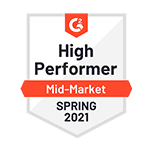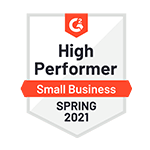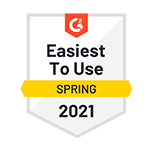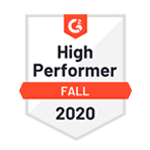In recent years, the use of Artificial Intelligence (AI) in the recruitment process has become more common. Recruiters and HR professionals use AI recruitment tools to streamline and make the hiring process more efficient. This article will discuss the benefits of using AI recruitment tools and how they are changing the recruitment process.
What are AI Recruitment Tools?
AI recruitment tools are becoming increasingly popular in today’s fast-paced job market. These software applications use artificial intelligence algorithms to automate various aspects of the recruitment process, such as sourcing candidates, screening resumes, and conducting initial interviews.
One of the key benefits of AI recruitment tools is their ability to manage large volumes of job applications. Machine learning algorithms in AI recruitment tools quickly sort through resumes and identify the best matches for the job. This saves recruiters and HR professionals time, allowing them to focus on more strategic tasks.
AI recruitment tools also have the ability to identify suitable candidates based on a variety of criteria. For example, some tools can analyze resumes and social media profiles to determine a candidate’s skills, experience, and even personality traits. This can help recruiters to more accurately assess a candidate’s fit for a particular role, increasing the likelihood of a successful hire.
In addition to resume screening, AI recruitment tools can also conduct initial screening interviews. Automated interviews can be conducted using NLP tools through chatbots or voice assistants. These tools ask predetermined questions and evaluate candidate responses. This helps reduce workload for recruiters and provides valuable insights into a candidate’s qualifications and potential fit for the role.
Another important benefit of AI recruitment tools is their ability to reduce bias in the hiring process. By removing human biases and relying on objective criteria, these tools can help to ensure that all candidates are evaluated fairly and on the basis of their qualifications alone. This can help to promote diversity and inclusion within the workplace, which has been shown to improve organizational performance.
Overall, AI recruitment tools are a valuable addition to the modern recruiting landscape. By automating various aspects of the recruitment process and providing valuable insights into candidate qualifications, these tools can help recruiters and HR professionals to make more informed hiring decisions and build stronger, more diverse teams.
Benefits of AI Recruitment Tools
There are several benefits to using AI recruitment tools. These include:
Increased Efficiency
Recruiting new employees is a time-consuming and resource-intensive process. AI recruitment tools can automate many repetitive recruitment tasks. These include screening CVs, scheduling interviews, and conducting initial candidate outreach. Automating these tasks saves recruiters and HR professionals time. They can then focus on more strategic aspects of recruitment.
AI-powered recruitment tools can simplify the recruitment process. They make it easier to gather and analyze candidate data. Applicant tracking systems (ATS) can store candidate information and track their progress. This ensures that important candidate information is not missed, making the recruitment process more efficient overall.
Improved Candidate Experience
The candidate experience is an important factor in the recruitment process, as it can impact a candidate’s perception of a company and their decision to accept a job offer. AI recruitment tools can help to provide a more positive candidate experience by making it easier for candidates to interact with recruiters and HR professionals.
For example, AI-powered chatbots can be used to answer candidate questions and provide feedback on the recruitment process, even outside of business hours. This can help to provide candidates with a more personalized and responsive recruitment experience. In addition, AI recruitment tools can help to reduce bias in the recruitment process, as they can analyze job applications objectively and without bias.
Improved Hiring Quality
The ultimate goal of the recruitment process is to identify and hire the most suitable candidate for a role. AI recruitment tools can help to achieve this goal by analyzing job applications and identifying the most relevant candidates based on their qualifications, experience, and other factors.
For example, AI-powered screening tools can analyze CVs and identify the most suitable candidates based on specific keywords and criteria. This can help to reduce the time and resources required to identify and screen potential candidates. In addition, AI recruitment tools can help to reduce bias in the recruitment process by analyzing job applications objectively and without bias.
Overall, AI recruitment tools can help to streamline the recruitment process, improve the candidate experience, and identify the most suitable candidates for a role. By leveraging the power of AI, recruiters and HR professionals can improve the efficiency and effectiveness of their recruitment process, ultimately leading to better hiring outcomes for their organization.
Types of AI Recruitment Tools
There are several types of AI recruitment tools available. These include:
CV Screening Tools
AI-powered CV screening tools analyze resumes to identify the most qualified candidates based on qualifications and experience. These tools quickly sift through large volumes of resumes and filter out unqualified candidates. They can also identify candidates with certain skills or experiences that are particularly relevant to the position.
Some CV screening tools use natural language processing (NLP) to understand the context and meaning of the text in resumes. This allows them to identify skills and experiences that may be relevant even if they are not explicitly stated in the job description or resume. Additionally, some CV screening tools can integrate with job boards and social media platforms to automatically search for and screen candidates who have applied or shown interest in similar positions.
When using CV screening tools, it’s crucial to ensure that they are designed to avoid bias. AI algorithms may be unintentionally biased against specific demographics or experiences, which could unfairly screen out qualified candidates. It’s important to evaluate and test any CV screening tool carefully to ensure that it is designed to avoid bias and make fair and accurate hiring decisions.
Chatbots
AI-powered chatbots can enhance the candidate experience. They can interact with candidates and provide personalized responses. Chatbots can answer common questions about the job, company, or application process. They can also provide real-time feedback on application status. Chatbots collect and analyze candidate behavior data, providing recruiters with valuable insights into the candidate experience.
Recruiters can integrate chatbots with other AI recruitment tools like CV screening or interviewing tools. They can use a chatbot to pre-screen candidates before inviting them to an interview or to collect feedback from candidates after an interview. This can help streamline the recruitment process and provide a more efficient and effective experience for both candidates and recruiters.
Interviewing Tools
AI recruitment tools use NLP to conduct initial screening interviews and identify suitable candidates. These tools can ask job-specific questions and evaluate responses based on tone, sentiment, and communication skills.
Some interviewing tools also use facial recognition technology to analyze candidates’ expressions and body language during the interview. This can provide additional insights into a candidate’s communication and interpersonal skills, as well as their level of comfort and confidence.
Interviewing tools may not fully replicate human interaction and intuition, which can be crucial in hiring. It’s important to test and evaluate any interviewing tool carefully to ensure its effectiveness and appropriateness for the job and industry.
Predictive Analytics
Predictive analytics tools analyze data from past recruitment processes to identify patterns and trends. The tools use AI to analyze candidate demographics, qualifications, experience, and performance, as well as hiring outcomes and retention rates. Recruiters can use this information to make more informed hiring decisions and improve overall hiring outcomes. The tools help identify factors that are most predictive of successful hires, which can inform future recruitment strategies.
Predictive analytics can detect bias in hiring. Recruiters can use this data to fix the problem. If a certain group is not being represented, recruiters can take action. This will ensure that all qualified candidates have a fair chance.
Predictive analytics can help in hiring, but it’s crucial to use them as just one of many factors. Relying too much on predictive analytics might cause us to miss out on candidates who don’t fit the typical patterns but could still excel in the role.
It’s essential to ensure that the data used to train predictive analytics algorithms is diverse and representative of the overall population. If the data is biased or incomplete, the algorithms may make biased or inaccurate predictions.
Challenges of AI Recruitment Tools
While there are many benefits to using AI recruitment tools, there are also some challenges to consider. These include:
Bias
One of the major challenges of AI recruitment tools is the potential for bias. AI algorithms can only learn from the data they are trained on, and if that data is biased, the algorithm will also be biased. This can lead to discrimination against certain candidates, particularly those from underrepresented groups.
For instance, if the dataset predominantly consists of male candidates, training an AI screening tool on it may create bias against female candidates. Similarly, training an AI interviewing tool on a dataset that is predominantly white may create bias against candidates of color. This could unfairly screen out qualified candidates and further perpetuate systemic bias in the hiring process.
To reduce bias in AI recruitment tools, evaluate the training data for diversity and representation. Regularly test and audit algorithms to identify and address any biases.
Cost
Another challenge of AI recruitment tools is the cost of implementation. Developing and implementing AI tools can be expensive, particularly for small businesses that may not have the resources to invest in this technology. Additionally, ongoing maintenance and updates to the AI algorithms can also be costly.
To address the challenge, partner with third-party providers that specialize in AI recruitment tools instead of building and maintaining your own. Evaluate the cost-benefit of implementing AI tools and ensure a sufficient return on investment.
Security
AI recruitment tools may require access to sensitive data, such as candidates’ resumes, contact information, and personal identifiers. This can pose a security risk if not managed properly. If those in charge of the AI algorithms do not secure them properly, they may become vulnerable to hacking or data breaches. These could compromise the personal information of candidates.
To address this challenge, it is important to implement robust security measures, such as encrypting data, restricting access to authorized personnel, and regularly monitoring for potential security threats. Additionally, businesses should ensure that they are in compliance with applicable data privacy laws and regulations.
Best Practices for Using AI Recruitment Tools
Recruiters and HR professionals should follow several best practices to ensure the effective use of AI recruitment tools. These include:
Regularly reviewing and updating AI algorithms to ensure that they are free from bias:
One of the major concerns with the use of AI in recruitment is the potential for bias in the algorithms. This bias can lead to discrimination against certain groups of candidates. To avoid this, it is important to regularly review and update AI algorithms to ensure that they are free from bias. Recruiters can analyze the data used to train the algorithms and identify any patterns that may contribute to bias. Once identified, these patterns can be corrected to ensure that the algorithms are fair and impartial.
Being transparent with candidates about the use of AI recruitment tools in the hiring process:
Transparency is key when it comes to the use of AI recruitment tools. Employers should let candidates know that AI tools will be used in the hiring process and clarify the ways in which their data will be utilized. Employers can provide clear and concise information about the tools and offer candidates the chance to opt-out of using AI tools.
Conducting regular security audits to ensure that sensitive data is kept secure:
The use of AI recruitment tools requires the collection and processing of sensitive data, such as personal information and employment history. It is important to ensure that this data is kept secure and confidential. Regular security audits can be conducted to identify any vulnerabilities in the system and to ensure that appropriate security measures are in place to protect against data breaches and cyber attacks.
Ensuring that AI recruitment tools comply with privacy and data protection laws:
The use of AI recruitment tools is subject to various privacy and data protection laws, such as the General Data Protection Regulation (GDPR) in the European Union. To avoid legal consequences, you should review the privacy policies of the tools you are using and make sure they comply with applicable laws.
Training recruiters and HR professionals on the proper use of AI recruitment tools:
Provide training to recruiters and HR professionals on the proper use of AI recruitment tools. This includes interpreting results and combining them with traditional recruitment methods. It can also include training on ethical considerations, such as avoiding bias and protecting candidate privacy.
Conclusion
Staying current with emerging best practices is crucial for effective and ethical use of AI recruitment tools. Improvements in AI technology will likely increase their use in recruitment. However, we must consider potential challenges like bias and privacy. Regular algorithm reviews and security audits can help mitigate concerns and ensure compliance with laws and ethics.
In conclusion, AI recruitment tools improve the hiring process by making it more efficient and effective. To ensure ethical use, companies should review algorithms, be transparent with candidates, conduct security audits, comply with privacy laws, and provide proper training. Therefore, Staying up-to-date with best practices will maximize the benefits of AI technology in recruitment.
FAQs
Q1. What are AI recruitment tools?
A1. AI recruitment tools are software that automates hiring tasks such as screening, sourcing, and analyzing resumes. They use machine learning to identify qualified candidates and save time while reducing bias.
Q2. What are some benefits of using AI in recruitment?
A2. Some benefits of using AI in recruitment include:
- Improved efficiency: AI recruitment tools can process large volumes of data and screen candidates more quickly than humans, saving time and resources.
- Increased accuracy: AI can analyze candidate data objectively and accurately, reducing the risk of bias and error.
- Better candidate experience: AI can provide a more personalized and efficient hiring experience for candidates, from initial screening to scheduling interviews and providing feedback.
- Cost savings: AI can reduce the need for manual labor and streamline the hiring process, potentially saving companies money on recruiting and onboarding.
Q3. Can AI recruitment tools completely replace human recruiters?
A3. While AI recruitment tools can automate many aspects of the hiring process, they cannot completely replace human recruiters. Human recruiters should work alongside AI to improve efficiency and accuracy in candidate evaluation. AI can assist in the initial screening and assessment of candidates. However, human recruiters are still required to make final hiring decisions and assess soft skills.
Q4. Are AI recruitment tools biased?
A4. To ensure fair hiring practices, designers of AI recruitment tools must create them to reduce bias and promote diversity. They should analyze data based on qualifications and skills objectively rather than demographics.
Q5. What are some popular AI recruitment tools?
A5. Some popular AI recruitment tools include:
- HireVue: A video interviewing and assessment platform that uses AI to evaluate candidates’ communication skills, personality, and other factors.
- Mya: An AI chatbot that can automate candidate screening and scheduling, as well as answer candidates’ questions and provide feedback.
- Entelo: A sourcing and candidate engagement platform that uses AI to identify and attract qualified candidates.
- Textio: A writing tool that uses AI to detect gender bias and suggest inclusive language.
- LinkedIn Talent Solutions: AI tools to help companies find, hire and analyze job candidates.


